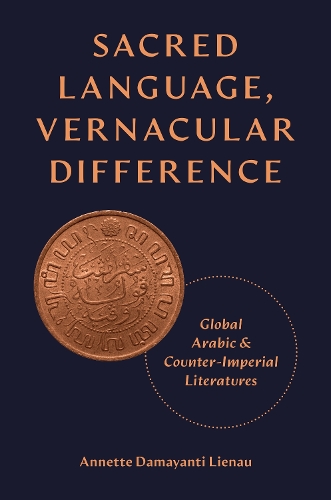
Sacred Language, Vernacular Difference: Global Arabic and Counter-Imperial Literatures
(Paperback)
Available Formats
Publishing Details
Sacred Language, Vernacular Difference: Global Arabic and Counter-Imperial Literatures
By (Author) Annette Damayanti Lienau
Princeton University Press
Princeton University Press
17th April 2024
United States
Classifications
General
Non Fiction
Literary studies: postcolonial literature
History
306.442927
Physical Properties
Paperback
400
Width 156mm, Height 235mm
Description
How Arabic influenced the evolution of vernacular literatures and anticolonial thought in Egypt, Indonesia, and Senegal
Sacred Language, Vernacular Difference offers a new understanding of Arabics global position as the basis for comparing cultural and literary histories in countries separated by vast distances. By tracing controversies over the use of Arabic in three countries with distinct colonial legacies, Egypt, Indonesia, and Senegal, the book presents a new approach to the study of postcolonial literatures, anticolonial nationalisms, and the global circulation of pluralist ideas.
Annette Damayanti Lienau presents the largely untold story of how Arabic, often understood in Africa and Asia as a language of Islamic ritual and precolonial commerce, assumed a transregional role as an anticolonial literary medium in the nineteenth and twentieth centuries. By examining how major writers and intellectuals across several generations grappled with the cultural asymmetries imposed by imperial Europe, Lienau shows that Arabicas a cosmopolitan, interethnic, and interreligious languagecomplicated debates over questions of indigeneity, religious pluralism, counter-imperial nationalisms, and emerging nation-states.
Unearthing parallels from West Africa to Southeast Asia, Sacred Language, Vernacular Difference argues that debates comparing the status of Arabic to other languages challenged not only Eurocentric but Arabocentric forms of ethnolinguistic and racial prejudice in both local and global terms.
Author Bio
Annette Damayanti Lienau is assistant professor of comparative literature at Harvard University.
